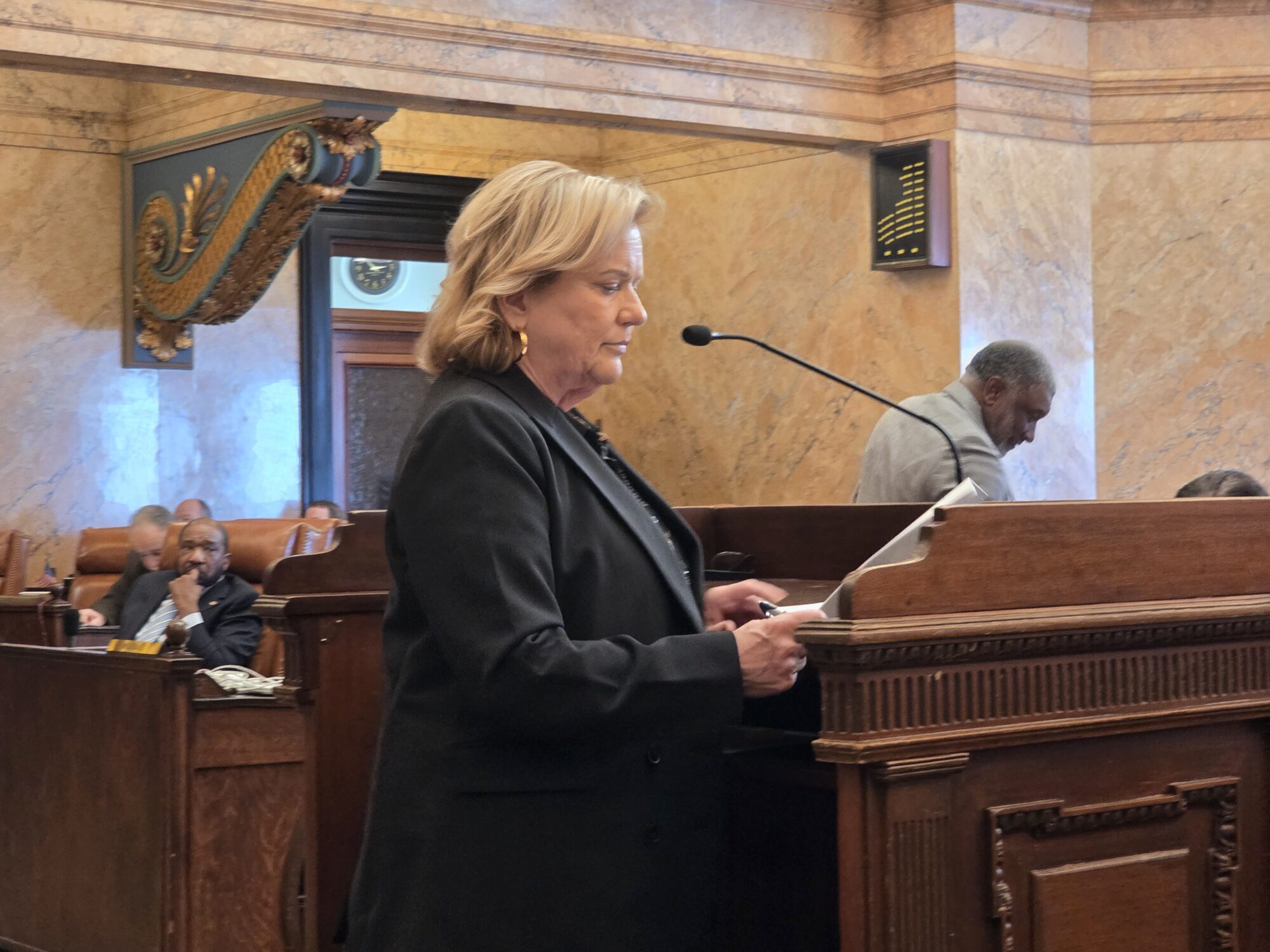Lawmakers hear how recent law changes have affected civil commitment processes

Tom Recore, Mississippi Department of Mental Health's Medical Director, discusses the changes going on as part of previous legislation that moves the mental commitment process along faster when felony criminal charges are involved. Photo by Jeremy Pittari | Magnolia Tribune.
- Two bills now in play are reducing bottlenecks in the criminal justice system, legislators told.
Efforts are underway to ensure that people with mental health issues facing felony charges are receiving care in a timely manner to determine if they are fit to stand trial.
Members of a joint legislative Public Health and Welfare Committee held Tuesday at the Mississippi Capitol heard how two recently passed bills are now making changes in the civil and criminal mental health commitment process. The lawmakers also learned about the creation of a secure facility to treat those accused of violent crimes.
Through House Bill 1640 passed in the 2024 legislative session, the process to civilly commit someone for a mental health reason who has not been charged with a crime has changed. Previously, those who were civilly committed by family members for mental health issues more likely than not had to spend time in jail while awaiting a bed at a state hospital. HB 1640, which went into effect last year, put restrictions on and subsequently reduced that practice.
Tom Recore, Mississippi Department of Mental Health’s Medical Director, said the bill has also reduced dependency on state hospitals while opening the door for more persons who need to be mentally restored before facing felony criminal charges.
“Which means we have increased access for folks who are not restorable to land in beds and be properly secured,” Recore described to the committee.
If a person who is facing felony charges, such as murder, is determined to need mental help before facing those charges in court, they are sent for psychiatric care to determine if their mental competence can be “restored.”
Another bill passed in 2024, HB 1088, went into effect last year and addressed a gap that was occurring in some civil commitments. Recore told legislators that previously if a circuit court judge remanded a case to the chancery court in order to determine if a mental commitment was necessary to restore competence, the chancery court would not take it up, leaving the person in question jail before action was taken on the case. When asked by Senator Brice Wiggins (R) what was causing the bottleneck, Recore said he could not say for sure.
“So, the case left the jurisdiction of the circuit court, and the chancery was supposed to pick it up. Often that ball was dropped frankly,” Recore added.
What HB 1088 did was allow the circuit court to maintain jurisdiction of the case and ensure the applicable mental health care was provided in a more timely manner while moving forward with the competency restoration process.
Recore added that the Department of Mental Health also established an online tracking system to keep tabs on that person as they move through the criminal justice system.
The committee also heard of the renovation of an existing building to securely house those who were charged with a violent crime but need mental health assistance to restore competency. Recore described the facility was a former female receiving center at the Mississippi State Hospital. It is now being renovated into a maximum security facility.
“It’s state of the art in its ability to provide security and maintain the historic look of the state hospital and actually be rehabilitative to those sent to our care,” Recore said.
Utilizing that facility for the high-risk patients will help protect the others who are not deemed high-risk receiving mental health treatment in less secure facilities.











